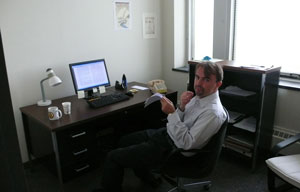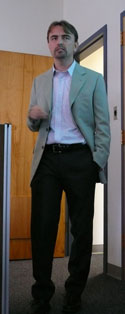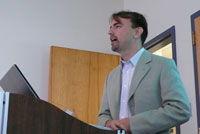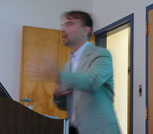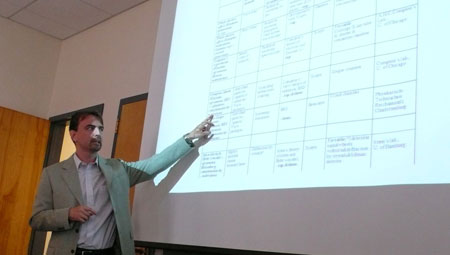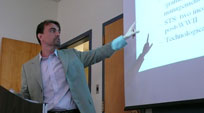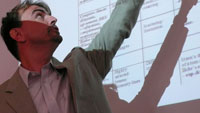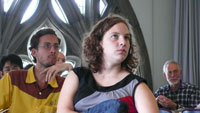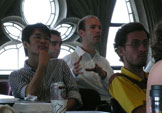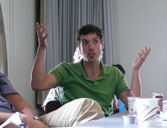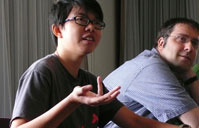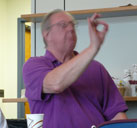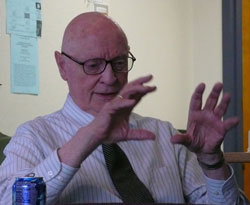::: center home >> being here >> last donut? >> limits of physics |
Limits of Physics
Then he told the story. Patrick had been passing through. He'd seen the abstract of Slobodan's talk posted. So he searched out Slobodan, found him in his office and announced to him "I have a paper for you!"
It is the second morning of the G20 summit in Pittsburgh. We have weathered months of tales of impending disaster as the protesters and their angry hordes are predicted to sweep through the city, pillaging and destroying. In the event, it has been much quieter. I caught my bus downtown at the usual place and, since the streets were essentially deserted of traffic, arrived at the Center much faster than normally. At noon, the talk had a pretty good turn out. I guessed, most of us had the same experience. Slobodan began by recalling for us the growing feeling among many critics that physics is suffering a decline. His first in a list of critics was Lee Smolin, who laments the impact of string theory. (This issue had been the topic of one of our workshops--Stringtime in Pittsburgh. Smolin had been present and made an impromptu speech from the floor.) As the story unfolded, we heard of other skeptical worries and then passed through an anatomy of physics. We quickly arrived at what Slobodan felt was the culprit. There has been, he explained, a significant change in the way physics pursues experiments. In the early part of the century, in the glory days of the birth of quantum theory, the experimental tradition was "diverse"--the now popular term that Slobodan co-opted. He sketched out in general terms how this was so. At this point, I'll admit to feeling a little skeptical and I suspect that same skepticism might have been shared in the room. "Give us some concrete details to back up the generalities," I was thinking. And then he did. The next screen was a huge matrix that carved up the experiments of the heroic era in many ways. Slobodan began pointing at different rows and columns, filling in detail after detail. One point especially impressed me. In this era, the experimentalists were also theorists. So overwhelmingly they were actually testing out their own theories, not just the theories of a few of the great names. That gave the experimental tradition its great diversity. Slobodan now turned to the modern era, taking the history of Fermilab in Chicago as his example. There, over the decades, the initially open lab gradually narrowed its range to the longer term execution of just a few experiments, each of which required years to complete. This was the change that Slobodan urged mattered. In the modern era, we no longer have many experiments driven by many questions from many perspectives. We now have just a few theories--or even just one--that delivers the questions for experimental investigation. Perhaps the experiments have answered those questions. But that does not mean that they have answered all the questions.
John D. Norton |


